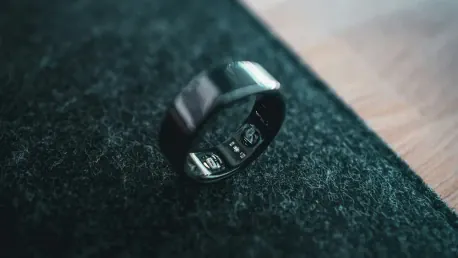For Apple, the decision to spend over $5 billion to acquire Oura, a company entering the smart ring market valued at that amount, is monumental. The tech space is buzzing with speculation following Mark Gurman’s suggestion in his Power On newsletter that Apple could benefit significantly from launching a smart ring alongside its Apple Watch. Historically, Apple has favored smaller acquisitions directly contributing to product development within a year. The question remains, should Apple make such a significant investment to immediately position itself at the forefront of a growing industry?
Strategic Acquisition Prospects
The acquisition of Oura would provide Apple with an immediate entry into the smart ring market, effectively augmenting its technology development. One standout feature, currently in the works for the Apple Watch, is a non-invasive blood glucose sensor. This feature holds considerable promise for diabetics, who often face the painful and expensive process of blood glucose testing. A non-invasive method could vastly improve their quality of life. Oura’s existing technology and market presence could expedite Apple’s progress in this direction, positioning it as a leader in this niche sector of health tech.
Comparing historical data, Apple has tended to favor smaller acquisitions that directly integrate into its products. For instance, the 2012 acquisition of AuthenTec enabled the integration of Touch ID, and the 2010 purchase of SRI International led to the development of Siri, both of which quickly translated into innovative features in iPhone models. While Apple typically develops its own technology, the rapidly growing smart health device market and the promise of quick market entry might warrant a substantial investment in Oura.
Potential Integration Challenges
Despite the apparent benefits, Apple’s track record with larger acquisitions presents a different story. Larger deals are rare, with the $3 billion acquisition of Beats Audio in 2014 and the $1 billion purchase of 5G technology from Intel in 2019 being the notable exceptions. These larger acquisitions took longer to integrate and demonstrate a measurable impact on Apple’s product lineup. The strategic and operational challenges inherent in integrating a company like Oura into Apple’s ecosystem cannot be underestimated. Merging Oura’s technology with Apple’s existing frameworks and ensuring seamless product integration will require significant effort and coordination across various departments within Apple.
Additionally, while Oura’s technology can augment Apple’s offerings, there is no guarantee the integration will be flawless or immediate. The projected benefits must be carefully weighed against the potential risks and challenges of such a large-scale acquisition. By considering prior experiences, Apple needs to evaluate if the time, resources, and effort required for integrating Oura would indeed be a prudent move or if developing a proprietary smart ring internally would be more viable and cost-effective in the long run.
The Competitive Landscape
Apple’s decision to potentially spend over $5 billion to acquire Oura, a company making strides in the smart ring market, is generating significant buzz in the tech sector. The move comes as Mark Gurman highlighted in his Power On newsletter that Apple could reap substantial benefits from introducing a smart ring alongside its Apple Watch. Traditionally, Apple has opted for smaller acquisitions that directly enhance product development within a short timespan, typically a year. This acquisition could be a strategic play for Apple to solidify its presence in the emerging wearable technology market, particularly in health and fitness tracking. The question remains whether this hefty investment will place Apple at the forefront of an industry with vast growth potential. Investing in Oura not only signifies Apple’s commitment to expanding its wearable tech lineup but also underscores the tech giant’s strategy to diversify its product offerings beyond the iPhone and Apple Watch. If successful, this acquisition could pave the way for Apple to lead in the smart ring market, tapping into a growing consumer demand for innovative and integrated health monitoring devices.









